DELTA Offers Express Grants for Fall 2022
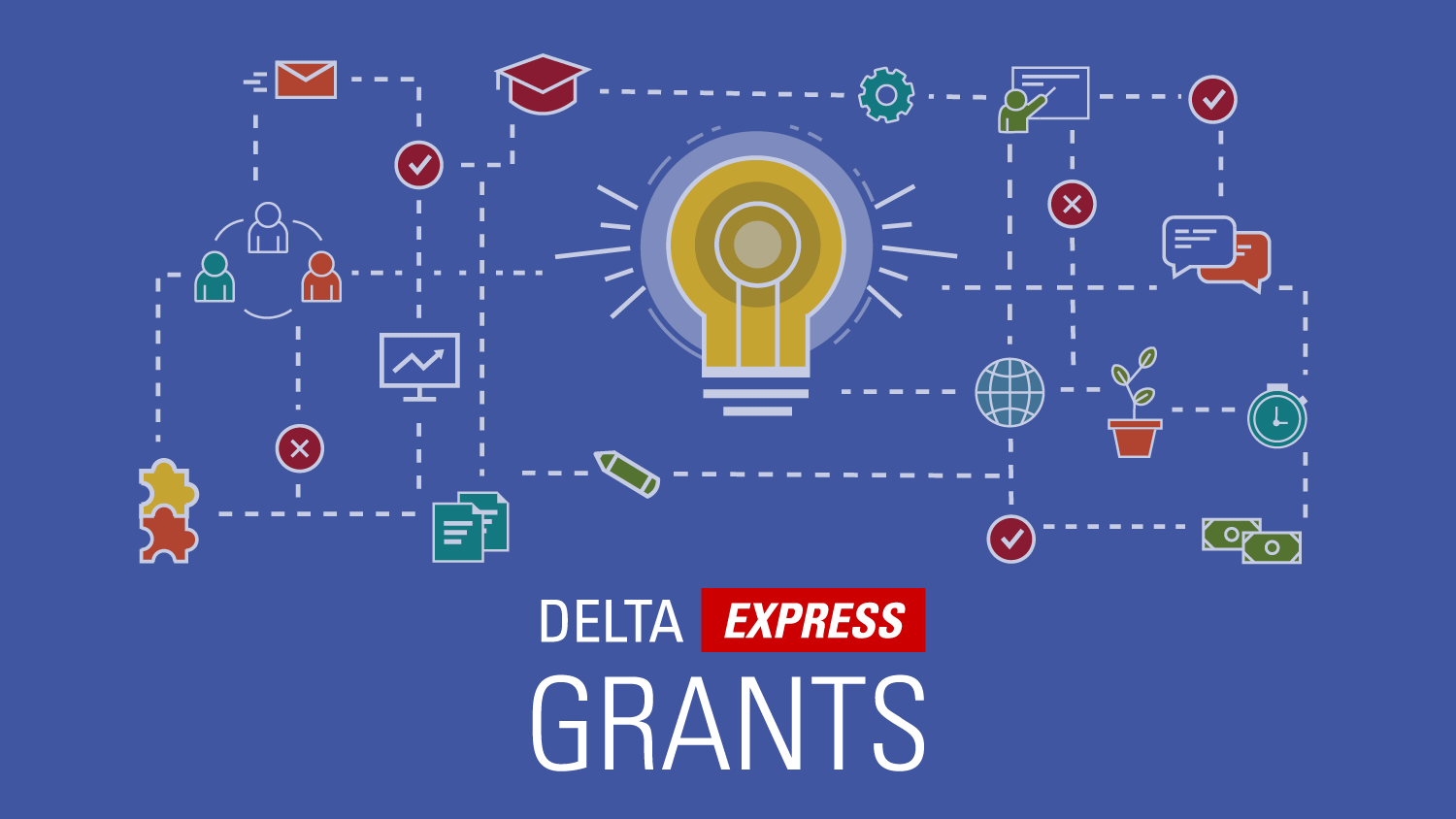
If you are ready to enhance teaching and learning in your course by applying technology in innovative, collaborative ways — you are in luck because DELTA Express Grants are back!
Like our traditional DELTA Grants program offered every year in the spring, DELTA Express Grants provide support, key services and financial resources to increase student success through faculty partnerships and research-based best practices.
DELTA Express Grants differ from DELTA Grants in that they are shorter and more directed course improvement grants which will last a semester as opposed to the traditional year.
We are excited to offer two grant types this fall — 3D Object Scanning Grant and the Instructional Tools.
3D Object Scanning Grant
Have you ever wished your students could examine objects used in your course closer than they can in-person — and even online? If so, this is the grant for you! This DELTA Express Grant allows for the exploration of use-cases for scanning and presentation of real-world 3D objects for in-person and/or online learning.
![]()
One of the techniques used to capture 3D objects is called photogrammetry. Photogrammetry is a process that uses photographs or videos of real-world objects or environments to create digital 3D representations of those objects (i.e., 3D models). It involves capturing many overlapping images of a structure, object or landscape.
The grant will facilitate the capture (scanning) of objects including production, post-production and the investigation of delivery methods to aid with classroom-based learning.
You are a good fit for this grant if:
- You have an educational need for representing 3D objects in a classroom setting
- You can present a demonstrated need for digital preservation
Other examples of projects this grant would work for:
- Spatial Awareness – A 3D object would be more comprehensive and foster student mastery of course content if it was available to be viewed in 3D as opposed to other digital media formats.
- Example: Replacing image sets of museum artifacts with 3D objects to allow students to see more unique angles of the objects and gain a better feel for the size and details of the subjects
- Limited Access – The subject matter/object would generally not be viewed/handled by students due to restrictions on access
- Example: Lab equipment which is critical to instruction but not accessible
- Detail and Proximity – Some subjects which would present greater detail under photogrammetry than the in-person access currently available to the user/student
- Example: Viewing surface damage on a piece of industrial equipment that may not be visible from the vantage point of the student during a visit
- Development of Assets and Content for Future XR Integration (VR, AR, projection, etc.)
- Example: Adding 3D scanned objects to A-Frame to create a shared virtual classroom space
- Capture a State in Time (ex: a deteriorating object or structure)
- Example: Capturing the state of surfaces in a forest before and after a prescribed burn
Instructional Tools Grant
Are you a fan of using instructional tools in your teaching, but want to apply them more effectively in your course? Meet the Instructional Tools grant.
![]()
The Instructional Tools grant assists faculty who want to create effective learning activities using the following tools and concepts: accessibility, Universal Design for Learning, gamification, Google Assignments, Gradescope, H5P, Moodle quizzes, Moodle rubrics and grading guides, Panopto, PlayPosit, Top Hat, Turnitin PeerMark and WordPress.
This grant is meant for faculty who want to integrate effective learning strategies aligned with their course goals and delivery methods but seek assistance designing effective and pedagogically appropriate activities using technology.
Recipients of this grant will receive $2,000 as well as DELTA support, including but not limited to workshops, consultations, action plan templates and additional resources.
Previous recipients have used DELTA Grants to adapt to the challenges of COVID-19, ensure online physical education classes are just as rigorous as their in-person counterparts and increase student engagement.
Existing 3D Projects From DELTA Grants
ENT 163: Ornamental and Turf Insects
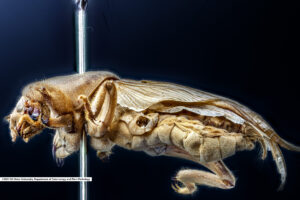
An example of this type of grant work, completed in 2021 created for Extension Associate Terri Billeisen, Ph.D.’s courses, allows students to examine 3D interactive models of insects to get a much clearer picture of the tiny parts of these bugs. Previous approaches to the course required in-person examinations of insect specimens to observe external features (mouthparts, antennae, legs, etc.) and understand how they impact insect survival, biology and behavior.
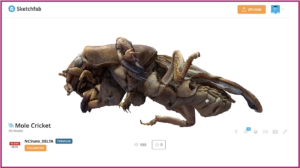
With the development of tools like the Insect Virtual Viewer, students can examine incredibly detailed pictures and 3D models of insects through a virtual platform, which allows students to access engaging learning materials from anywhere.
Links to DELTA News Articles About 3D Scanning:
Metamorphosis Turns Into An Infestation
A Metamorphosis: DELTA Grant Transforms ENT 410
ADN 475: Pre-Industrial World Textiles
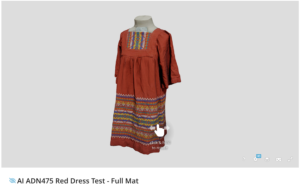
With limited access, 3D scanning of archival garments and textiles made perfect sense for the Art and Design course, ADN 475: Preindustrial World Textiles. Garments were scanned on forms and flat to capture important details and structure elements. In the class, the artifacts were only available for a single viewing in a gallery setting at a safe distance. The 3D scans provided students the ability to interact in close proximity and return to it as a resource.
Soil Exposure at Umstead Park
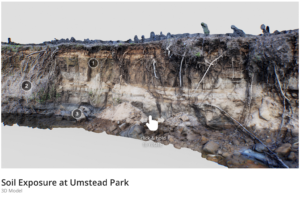
This soil exposure was the main subject of an on-site photo capture project to allow NC State DELTA’s Educational Media Design team to further explore the use of photogrammetry in classroom media. This model is part of an effort to further our media creation endeavors and bring even better content to classrooms in exciting new ways.
Ready to apply?
Visit go.ncsu.edu/delta-express-grants for more information about each grant type and other important dates.
View our DELTA Express Grants FAQ page for information about grant eligibility, the review process and general inquiries. The proposal submission system opens Aug. 22 and closes on Sept. 16.
Email deltaexpressgrants@ncsu.edu with specific questions.


